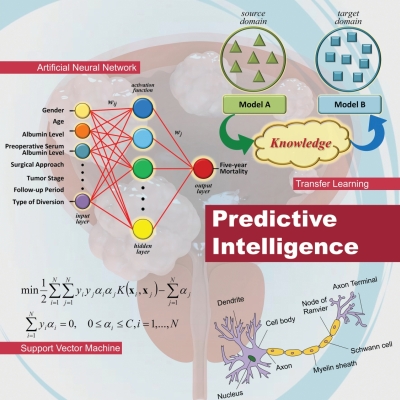Bladder cancer is a common cancer in genitourinary malignancy. For muscle invasive bladder cancer, surgical removal of the bladder, i.e. radical cystectomy, is in general the definitive treatment which, unfortunately, carries significant morbidity and mortality. Accurate prediction of the mortality of radical cystectomy is therefore needed. Statistical methods have conventionally been used for this purpose, despite the complex interactions of high-dimensional medical data. Machine learning has emerged as a promising technique for handling high-dimensional data, with increasing application in clinical decision support, e.g. cancer prediction and prognosis. Its ability to reveal the hidden nonlinear interactions and interpretable rules between dependent and independent variables is favorable for constructing models of effective generalization performance.
Publications
- An output-based knowledge transfer approach and its application in bladder cancer prediction. International Joint Conference on Neural Networks (IJCNN 2017), Anchorage, Alaska, USA, May 14 – 19, 2017. [doi]
- Prediction of mortality after radical cystectomy for bladder cancer by machine learning yechniques. Computers in Biology and Medicine, vol. 63, pp. 124-132, 1 August 2015. [doi]
- Using artificial neural network to predict mortality of radical cystectomy for bladder cancer. The 2014 International Conference on Smart Computing (SMARTCOMP 2014), 3-5 November, 2014, Hong Kong, China. [doi]

